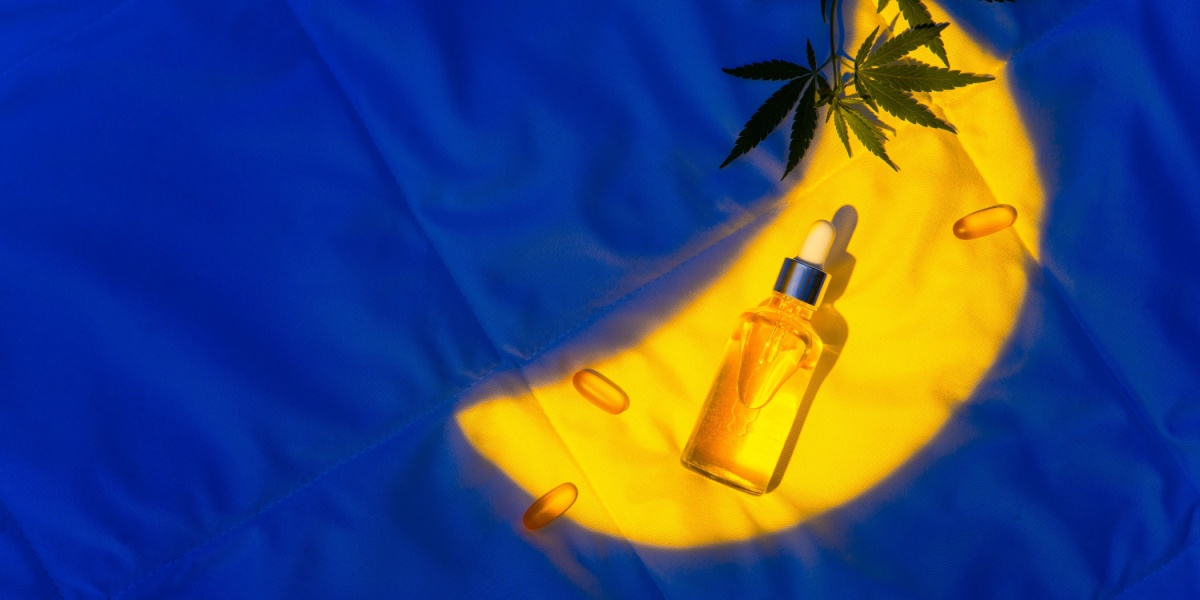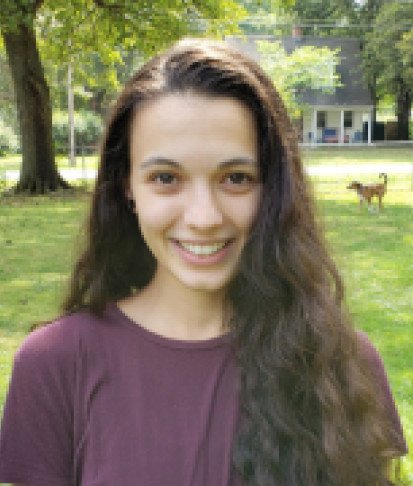More people are turning to cannabis as a nighttime remedy for insomnia and restless nights. Cannabis has become one of the most commonly used “sleep aids.” One survey found that about 16% of U.S. adults who use sleep aids choose cannabis.
Enthusiasts claim that going to bed high relaxes the mind and leads to deeper sleep. But what really happens when you sleep high? Does cannabis genuinely improve your sleep quality and health, or are there hidden downsides?
- Using cannabis (especially THC-rich strains) can make it easier to fall asleep and may increase deep, slow-wave sleep while reducing REM sleep (the dream phase) for the night. This often leads to fewer dreams and might help with conditions like nightmares.
- Many people report falling asleep faster and feeling refreshed the next morning compared to using OTC or prescription pills. However, some experience next-day sleepiness or irritability after using cannabis at night.
- Nightly cannabis use can lead to tolerance (needing more to achieve the same effect) and dependence, where stopping suddenly causes rebound insomnia and vivid dreams.

How cannabis affects your sleep
Cannabis interacts with the body’s endocannabinoid system (ECS), which regulates sleep-wake cycles. Tetrahydrocannabinol (THC), the primary psychoactive compound of cannabis, has a sedative effect on many people. [1] THC can shorten the time it takes to fall asleep (sleep latency) in the short term.[2]
Cannabidiol (CBD), a non-intoxicating component of cannabis, may have alerting or anxiety-reducing effects depending on the dose, and is not overtly sedating on its own. When you use a cannabis product at night, the balance of THC and CBD (along with other compounds like terpenes) will influence how your sleep is affected. [3]
Subjectively, many consumers feel that using marijuana before bed helps them relax and eases insomnia symptoms. For example, a daily diary study of young adults found that on days they used cannabis (and no alcohol or other substances) in the evening, they reported better perceived sleep health that night compared to non-use days. [4]
Evidence from research
However, the objective effects of cannabis on sleep are more complex. Lab studies and surveys show mixed results. While acute cannabis use can induce drowsiness and help initiate sleep, chronic or heavy use might disrupt standard sleep patterns. [2][5] One survey of regular cannabis consumers found that those who endorsed current (daily/near-daily) use had worse self-reported sleep quality on the whole and shorter sleep duration, especially if they frequently used edible forms of cannabis at night. [5]
Overall, moderate occasional nighttime cannabis use tends to have more positive effects on sleep onset and anxiety reduction, whereas heavy, prolonged use can start to impair sleep quality.
What happens when you "sleep high"?
Sleeping while high doesn’t only cause initial drowsiness; it shifts the balance of your sleep stages, affecting sleep quality. Research indicates that cannabis use, primarily due to THC, alters REM (rapid eye movement) sleep and deep sleep (slow-wave sleep). Specifically, THC tends to decrease REM sleep. REM sleep is the stage in which most dreaming occurs and is essential for memory consolidation and mood regulation. [6]
Deep sleep and REM sleep: What changes when you're high
If you go to bed high, you’ll likely have fewer dreams (or none you remember). This REM reduction is one reason cannabis (and related compounds) has been explored to help with PTSD nightmares; fewer REM phases can mean fewer intense nightmares. [2]
On the other hand, some evidence suggests cannabis can increase slow-wave sleep (SWS), which is the deepest stage of sleep. Slow-wave sleep is considered the most restorative stage, important for healing and immune function. Some studies noted a longer duration of deep sleep in cannabis users, which might be why many feel especially well-rested or “knocked out” after using marijuana at night. [2][6][7]
The effect on deep sleep depends on the dose and individual tolerance.
Benefits of cannabis on sleep
Despite the caution that many experts give, many adults swear by a bedtime toke or edible as their secret to a good night’s sleep. There are, arguably, some potential benefits of using cannabis for sleep, especially in the short term or for certain conditions:
- Falling asleep faster: The most apparent benefit is reducing the time it takes to fall asleep. THC’s sedative properties can help reduce sleep latency. One review concluded that THC consistently shortened the time to fall asleep for people who use cannabis to sleep. [2]
- Easing insomnia symptoms: Beyond just falling asleep quickly, many users feel that cannabis improves their overall ability to stay asleep through the night. In a daily survey, participants had fewer insomnia complaints on nights they used cannabis compared to when they didn’t. [4] Additionally, a large-scale survey found that a majority of respondents using cannabis for sleep felt it helped them get deeper, more continuous sleep. [8]
- Reduction of nightmares: For people who suffer from nightmares or conditions like PTSD, “sleeping high” can reduce dream recall and the frequency of nightmares. As noted, THC suppresses REM sleep (the dream stage). Researchers have found that orally administering THC or THC analogs (like nabilone) can significantly decrease nightmares in PTSD patients. [9]
- Chronic pain relief at night: Studies have noted that certain cannabinoids (including THC and CBD) improve sleep in chronic pain patients, likely because the person is not kept awake by pain. [10]
- Morning-after effects: Unlike many sleep aids, cannabis may leave consumers feeling refreshed. In one survey, 88.6% reported better morning function with fewer hangover effects than typical medications. [8]
- Anxiety reduction: Anxiety often fuels insomnia. Low to moderate cannabis doses, especially CBD-rich products, can ease anxious thoughts and support sleep. One study found 79% of participants had less anxiety and 67% slept better within a month. [11] However, high THC may increase anxiety in some.
It is important to acknowledge, however, that sleep improvements from cannabis yield better results with short-term or occasional use.
Long-term effects and risks
While there are clear benefits to “sleeping high” in the short run, long-term nightly use of cannabis carries potential risks for your sleep and health. Research and clinical observations have raised several concerns about using cannabis as a chronic sleep aid:
- Tolerance and diminishing returns: Over time, your body can develop a tolerance to cannabis. This means that the same dose becomes less effective at making you sleepy, and you might need to take more to get the same effect.
- Dependence and withdrawal: Regular nightly cannabis use can lead to dependence, where the brain relies on it to initiate sleep. Stopping suddenly may trigger withdrawal symptoms like rebound insomnia, vivid dreams, and restlessness. These effects, especially with high-THC use, highlight the importance of tapering rather than quitting abruptly. [12]
- Reduced sleep quality: Chronic cannabis use may degrade sleep quality over time, even if it initially helps with falling asleep. Studies link long-term THC use to poorer sleep architecture and higher rates of sleep problems. [2][5] Over time, THC can contribute to ongoing sleep disturbances in people who once found it to be an effective sleep aid.
- Minimal effect on chronic insomnia: Evidence for cannabis as a long-term treatment for clinical insomnia is limited and mostly anecdotal. A significant review found little proof of efficacy and noted potential harms. [12][13] Without large, long-term trials, cannabis remains an unproven option for chronic sleep disorders.
Factors influencing responses
Not everyone experiences “sleeping high” the same way. Individual responses to cannabis vary widely, and several factors influence whether cannabis will help or hinder your sleep:
- THC vs. CBD content: The THC–CBD balance plays a key role in sleep effects. [5]
- Dose and potency: How much you use can dramatically change the effect. Low to moderate doses of THC tend to relieve stress and promote sleep, but high doses can be counterproductive.
- Frequency of use: If you use cannabis occasionally (e.g., once or twice a week) for sleep, you are more likely to reap benefits without building tolerance. Using it every night will build tolerance faster and alter your body’s sleep regulation.
- Method of ingestion: The way you consume cannabis influences how quickly it acts and how long it lasts, which in turn affects sleep.
- Strain and terpenes: Indica strains are often seen as more sedating, partly due to their terpene profiles. Myrcene, linalool, and terpinolene are terpenes linked to calming effects, with many consumers seeking high-myrcene strains for sleep. [14]
- Age, metabolism, and individual biology: All shape how cannabis affects sleep. [15]
- Underlying sleep or health concerns: The reason for sleeplessness matters too, whether pain, anxiety, hyperactivity, sleep apnea, restless legs syndrome, or parasomnias (sleepwalking).
Safer strategies for better sleep
If using cannabis for sleep, these evidence-based tips can help you avoid harm:
- Start low: Use the smallest effective dose and adjust gradually.
- Choose balanced strains: High-CBD or THC: CBD blends are better for routine use.
- Time it wisely: Inhale or ingest cannabis 30–90 minutes before bed.
- Avoid mixing substances: Don’t combine cannabis with alcohol or sedatives such as benzodiazepines or opioids.
- Track your sleep: Monitor how your sleep quality changes and adjust use.
- Take tolerance breaks: Pause use regularly to reset sensitivity.
- Stick to sleep hygiene: Keep a consistent bedtime, limit screens, and create a calm sleep environment.
- Explore talk therapy: CBT-I is the gold standard for chronic insomnia.
- Stay legal and informed: Source cannabis from regulated providers.
Alternatives to cannabis for sleep
It’s worth knowing about other alternatives and supplements for sleep. Some people might find these sufficient, or you might combine small measures from multiple approaches for a holistic solution. Here are some common alternatives to consider:
- Over-the-counter (OTC) options include melatonin and antihistamine-based sleep aids (e.g., diphenhydramine or doxylamine, found in Benadryl or NyQuil).
- Doctors may prescribe medications like, zolpidem (Ambien), eszopiclone (Lunesta), or benzodiazepines like temazepam for short term use.
- Herbal and natural remedies like chamomile tea, lavender (aromatherapy or supplements), and magnesium supplementation can aid sleep.
- Cognitive Behavioral Therapy for Insomnia (CBT-I) and relaxation techniques such as deep breathing exercises, progressive muscle relaxation, or meditation can also prepare your body for sleep. Even a simple routine of reading something light (not work-related) or writing in a journal to dump out anxious thoughts can be an alternative to reaching for any substance.


-guide-detail.jpg?v=1756808779)

-guide-detail.jpg?v=1741692490)